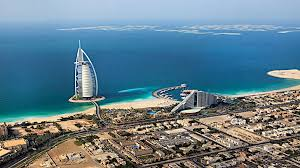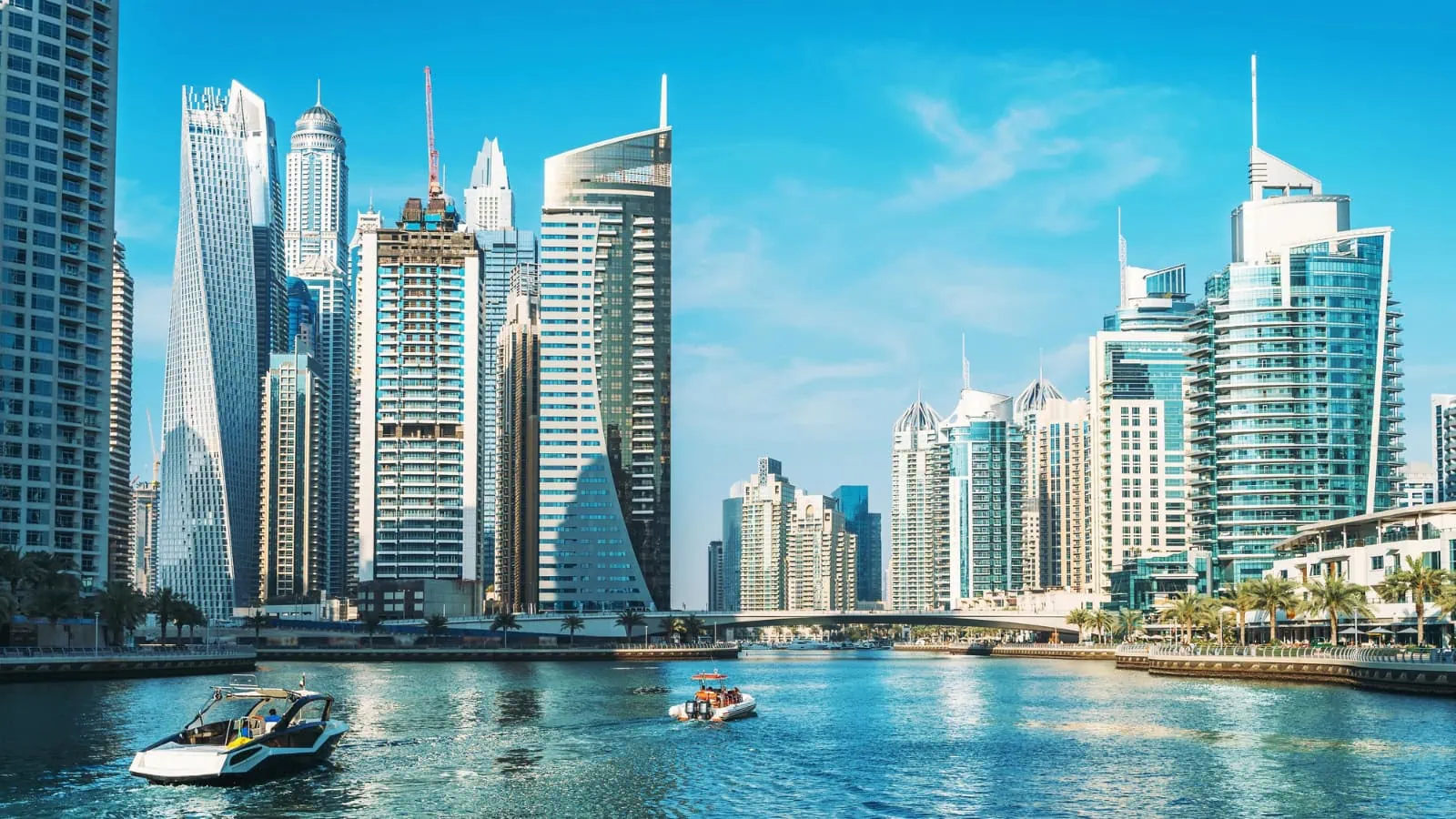Now Reading: Real Estate: 6 Vital Tips on Foreign Ownership Regulations in 2025
-
01
Real Estate: 6 Vital Tips on Foreign Ownership Regulations in 2025
Real Estate: 6 Vital Tips on Foreign Ownership Regulations in 2025

Table of Contents
Foreign Ownership: Dubai’s real estate market, a global hotspot delivering 6-8% rental yields and no capital gains tax, remains a prime destination for U.S. investors in 2025, despite a forecasted 15% price decline per Fitch Ratings. With AED 761 billion ($207.2 billion) in 2024 transactions, foreign ownership regulations, governed by the Dubai Land Department (DLD) under Law No. 7 of 2006, allow 100% ownership in designated freehold zones. These rules, aligned with the Dubai Economic Agenda D33 and Real Estate Strategy 2033, facilitate seamless investment. This guide, crafted in clear, SEO-friendly language with an engaging tone, provides six vital tips for U.S. investors navigating foreign ownership regulations in Dubai’s real estate market, supported by data, legal insights, and risk analysis.
6 Vital Tips on Foreign Ownership Regulations
1. Invest in Designated Freehold Zones
Foreign investors can own properties outright in freehold zones like Dubai Marina, Palm Jumeirah, and Jumeirah Village Circle (JVC), as per Law No. 7 of 2006. Non-freehold areas require leasehold agreements (up to 99 years) or local partnerships, per DLD.
- Tip: Focus on freehold zones to secure 100% ownership and 6-8% yields. Verify zones via the DLD’s Dubai REST portal.
- Investor Benefit: U.S. investors avoid local sponsor complexities, retaining full control over AED 1.2 million Dubai Marina apartments yielding 8-10%.
- Example: A $326,710 Dubai Marina unit purchase ensures full ownership, yielding $26,137 annually, vs. leasehold constraints in non-freehold Deira.
- Source: DLD
2. Understand Golden Visa Eligibility
Properties valued at AED 2 million ($544,518) or more qualify for a 10-year Golden Visa, while AED 1 million investments may secure a 5-year visa (under review in 2025), per the General Directorate of Residency and Foreigners Affairs (GDRFA).
- Tip: Purchase AED 2 million properties in Palm Jumeirah to gain long-term residency, enhancing investment flexibility. Apply via ICP.
- Investor Benefit: U.S. investors gain residency to manage 6-10% yielding portfolios, sponsoring family for AED 1,150 per person.
- Example: A $680,647 Palm Jumeirah villa secures a Golden Visa, yielding $47,645 annually and saving $2,722 on family visas vs. standard rates.
- Source: GDRFA
3. Comply with Transaction and Registration Fees
Foreign buyers pay a 4% DLD transfer fee (split with the seller), a 2% agency fee, and registration fees (AED 540-4,200), per DLD. Off-plan purchases may incur additional developer fees (1-2%).
- Tip: Budget 6-8% of property value for fees to avoid surprises. Use Property Finder to negotiate agent commissions.
- Investor Benefit: Proper budgeting ensures 6-8% yields in JVC (from AED 600,000), with clear title deeds registered via DLD.
- Example: A $163,355 JVC apartment incurs $6,534 DLD fees and $3,267 agency fees, offset by $11,435 annual rent.
- Source: DLD
4. Leverage Free Zone Business Structures

Foreign investors can establish real estate businesses in free zones like DMCC or DIFC with 100% ownership, bypassing local sponsor requirements, per Federal Decree-Law No. 32 of 2021. Resolution No. (11) of 2025 allows mainland operations.
- Tip: Set up a DMCC company for AED 20,000 to manage AED 1 million portfolios, leveraging 0% corporate tax for Qualifying Free Zone Persons (QFZPs). Consult Shuraa.
- Investor Benefit: U.S. investors streamline operations, earning 2-5% commissions on AED 2 million deals, boosting ROI.
- Example: A DMCC firm earns $8,168 on a $544,518 Dubai Hills sale, saving $2,452 vs. mainland setups with 9% tax.
- Source: FTA
5. Navigate Anti-Money Laundering (AML) Requirements

The DLD and Virtual Assets Regulatory Authority (VARA) enforce strict AML checks for transactions above AED 100,000, requiring KYC documentation under UAE Federal Law No. 20 of 2018. Non-compliance risks AED 5 million fines, per Al Tamimi.
- Tip: Provide passport copies, proof of funds, and UAE ID (if applicable) to DLD-approved agents like Unique Properties.
- Investor Benefit: Compliance ensures secure AED 800,000 Dubai South investments, yielding 6-7% with no legal disruptions.
- Example: A $217,807 Dubai South unit purchase clears AML checks, avoiding $13,610 fines and securing $15,247 rent.
- Source: VARA
6. Monitor Off-Plan Ownership Rules
Off-plan properties, which accounted for 60% of 2024 transactions, require completion and a AED 2 million valuation for Golden Visa eligibility. Developers must deposit 20% of project funds in escrow, per DLD’s Law No. 8 of 2007.
- Tip: Verify developer escrow compliance via DLD’s Oqood system and invest in reputable projects like Emaar’s Dubai Hills (from AED 1.2 million). Use Emaar.
- Investor Benefit: U.S. investors mitigate default risks, securing 10-15% appreciation by 2028 in off-plan units.
- Example: A $326,710 Dubai Hills off-plan unit appreciates to $375,717 by 2028, yielding $22,870 annually.
- Source: DLD
Legal Considerations for U.S. Expats
- UAE Legal Framework:
- Freehold Ownership: Governed by Law No. 7 of 2006, allowing 100% ownership in designated areas. Non-freehold zones require leaseholds or local partners.
- VAT: 5% on commercial transactions (e.g., developer fees, brokerage). Residential purchases and rentals exempt. Recoverable for VAT-registered investors.
- Corporate Tax: 9% on taxable income above AED 375,000, with 0% for QFZPs or Small Business Relief (revenue below AED 3 million).
- Compliance: Register for VAT if taxable supplies exceed AED 375,000 by March 31, 2025. File corporate tax returns by September 30, 2025. AML fines up to AED 5 million for non-compliance.
- U.S. Tax Framework:
- Reporting: Declare worldwide income under FATCA via Forms 8858, 1116, Schedule E. Income taxed at 10-37%, capital gains at 0-20%.
- Foreign Tax Credit (FTC): Offset U.S. tax with UAE corporate tax (not VAT or fees).
- FEIE: Exclude USD 130,000 of earned income if resident in UAE for 330 days.
- Golden Visa: AED 2 million investments qualify for 10-year residency; AED 1 million for 5-year (subject to 2025 review).
- Transaction Fees: 4% DLD fee (split with seller), 2% agency fee, AED 540-4,200 registration fees.
Risks and Mitigation
- Oversupply: 210,000–250,000 units by 2026 may deepen price declines. Invest in freehold zones like Dubai Marina for 8-10% yields.
- Regulatory Shifts: Potential 2025 changes to Golden Visa thresholds. Monitor GDRFA updates.
- U.S. Tax Burden: IRS reporting reduces returns. Claim FTC and Schedule E deductions with U.S. tax advisors.
- Developer Risks: Off-plan defaults may occur. Verify escrow accounts via DLD’s Oqood system.
- AML Scrutiny: Delays in KYC approvals risk transaction halts. Engage Farahat & Co. for compliance.
Step-by-Step Guide for U.S. Investors
- Research Freehold Zones: Identify zones like JVC or Palm Jumeirah via Dubai REST.
- Select Properties: Target AED 2 million properties for Golden Visa eligibility or AED 600,000 JVC units for yields via Property Finder.
- Verify Developer Compliance: Check escrow and licensing for off-plan projects on DLD’s Oqood system.
- Complete Purchase: Pay 4% DLD and 2% agency fees, registering with DLD. Use Unique Properties.
- Ensure AML Compliance: Submit KYC documents to avoid AED 5 million fines, consulting Farahat & Co..
- Apply for Golden Visa: Submit AED 2 million investment proof to GDRFA for 10-year residency by Q2 2025.
- Manage Taxes: File UAE VAT/corporate tax by September 30, 2025, and U.S. taxes by April 30, 2025, with FTC.
Conclusion
Navigating foreign ownership regulations in Dubai’s real estate market in 2025 empowers U.S. investors to secure 6-10% yields and 10-15% appreciation by 2028 in a AED 761 billion sector. By investing in freehold zones, leveraging Golden Visa eligibility, budgeting for fees, and ensuring AML compliance, investors can mitigate risks like oversupply and U.S. tax burdens. Platforms like Property Finder and advisors like Farahat & Co. streamline success in this dynamic market, despite a 15% price correction forecast. watch about this
read more like this: 7 Impactful Corporate Governance Enhancements Affecting Investors in 2025



















